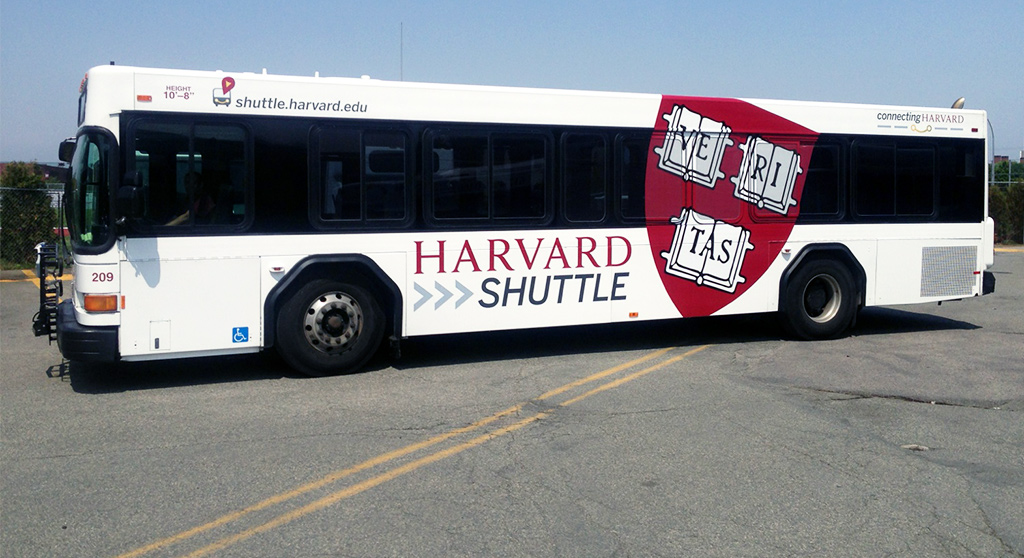Harvard going all-electric on four buses in fleet, in accord with state car plan and ahead of MBTA

One of four Harvard biodiesel buses due for replacement by all-electric buses for use starting this fall. (Photo: Harvard)
Harvard plans to buy four all-electric buses to replace four existing biodiesel buses, the school said in a Tuesday press release. The buses are expected to be operational this fall in a 12-bus fleet facilitating approximately 600,000 student trips across Harvard’s campuses in Cambridge and Boston each year.
The university looked for electric buses similar in size to current buses. They will use a fast-charging technology that will get the buses to full power in about three hours – done overnight while demand for electricity is lower, Harvard said.
The move comes amid a flurry of transit-related environmental news. In late December the Baker administration released a plan that would require all cars sold in the state to be electric by 2035, with the goal of increasing the number of electric cars in use in the state to 750,000 from 30,000. On Jan. 1, the MBTA announced that it switched to a 100 percent renewable electricity contract that reduced its carbon footprint and its electricity bills.
Absent from the news has been the electrification of bus fleets. The MBTA in November decided against buying all-electric buses like those announced by Harvard due to performance concerns, specifically around battery range in cold weather, an anticipated increase in service costs and the long charging time the buses would require.
Instead, the Massachusetts BayTransportation Authority went ahead with buying 45 enhanced electric hybrid buses that still run mostly on diesel fuel, albeit with a larger battery pack. The MBTA estimated in its November decision that the update to the buses would reduce greenhouse gas emissions from bus transportation by 8 percent – a reduction that pales in comparison with the estimated 50 percent drop in emissions that come from a fully electric bus.
Harvard’s purchase was made possible in part by a $500,000 grant from the state government paid for by a settlement with Volkswagen in the fallout from the automaker’s 2015 emissions cheating scandal. The university hopes its move to electric will be the first of many. “Harvard hopes to be a catalyst for other universities, businesses and cities by piloting the transition to electric buses,” said Heather Henriksen, managing director of the Harvard Office for Sustainability.



